Coaching Fundamentals in Healthcare
Presented by Hélène Thériault
12-Month Subscription
Unlimited access to:
- Thousands of CE Courses
- Patient Education
- Home Exercise Program
- And more
In today’s complex healthcare landscape, professionals are tasked with helping clients not only heal physically but also adopt long-term behavior changes that support wellness and quality of life. The Coach Approach offers a powerful, collaborative method for enhancing client motivation, engagement, and outcomes—especially when traditional interventions alone fall short. Coaching Fundamentals in Healthcare is course 1 of 8 in the Dive Into a Coach Approach® 1.0 | Core Fundamentals course series. This course introduces learners to the foundational elements of coaching and how they can be seamlessly integrated into various clinical roles and settings, including hospitals, outpatient clinics, schools, and telehealth. By exploring what coaching is (and isn’t), identifying core coaching characteristics, and understanding how to define and implement a Coach Approach, healthcare providers can begin using these strategies immediately to support clients facing challenges such as chronic disease, mental health conditions, and lifestyle barriers. This course is ideal for clinicians looking to improve communication, foster client autonomy, and expand their therapeutic toolbox to include coaching-informed practices.
Learning Objectives
- Identify when to use a Coach Approach in healthcare
- List three examples of roles, practice areas, and types of clients/patients to which the Coach Approach can be applied
- Identify six key coaching competencies
- Define a Coach Approach in healthcare
- Recognize the difference between formal and informal Coach Approach
- State one professional reason to consider using a Coach Approach in your practice
Meet your instructor

Hélène Thériault
Hélène brings more than two decades of experience in the medical field to her role as a master certified coach (MCC). Witnessing the toll of burnout firsthand, she discovered the power of the Coach Approach in her practice, benefiting both her patients’ recovery and her own well-being. Drawing on her expertise in…
Chapters & learning objectives

1. The Versatility of the Coach Approach in Healthcare
This chapter explores the wide-ranging relevance of the Coach Approach across roles, disciplines, and practice settings. Through real-world examples and reflective prompts, learners will discover how coaching can enhance outcomes with diverse patient populations and support behavior change, motivation, and resilience in clients navigating complex health journeys.
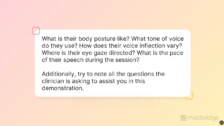
2. What Is and Isn’t Coaching?
In this chapter, learners clarify what distinguishes coaching from other therapeutic modalities. By comparing coaching characteristics with traditional clinical approaches, participants gain insight into the Coach Approach’s emphasis on inquiry over instruction, partnership over authority, and action-oriented collaboration that energizes rather than depletes both client and clinician.
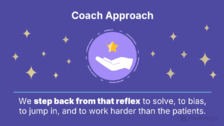
3. Defining a Coach Approach in Healthcare
The final chapter introduces a formal definition of the Coach Approach and breaks down its essential components, such as the use of strengths-based communication, forward-focused dialogue, and cocreated action plans. Learners will be introduced to informal and formal ways of using coaching, including the Coaching Spectrum Framework™, setting the stage for future skill building and application in clinical practice.
More courses in this series
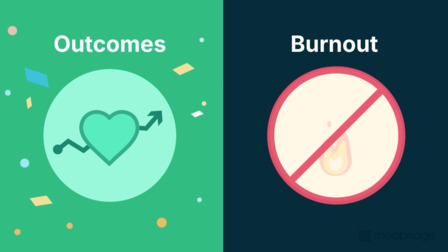
Coaching Fundamentals in Healthcare
Hélène Thériault

Building Clarity: Defining the Coaching Process
Hélène Thériault

Listening and Mindset: Applying the Foundations
Hélène Thériault

Diving Deeper: Understanding the Client’s Perspective
Hélène Thériault

Exploration in Action: Guiding Clients Toward Solutions
Hélène Thériault

Summing Up and Taking Action
Hélène Thériault
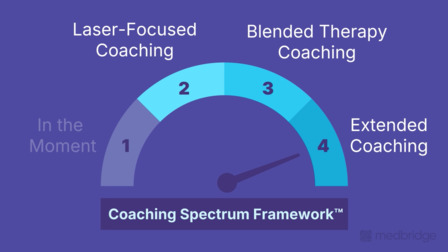
Bringing It All Together: Coaching Framework and Application
Hélène Thériault

Laser-Focused Coaching
Hélène Thériault
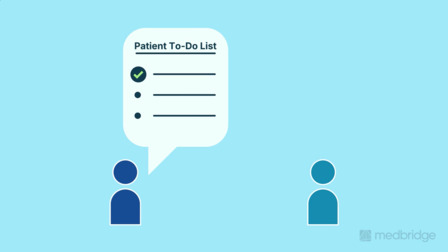
Using a Coach Approach With Remote Monitoring
Hélène Thériault